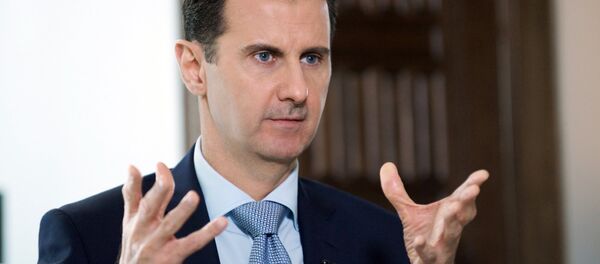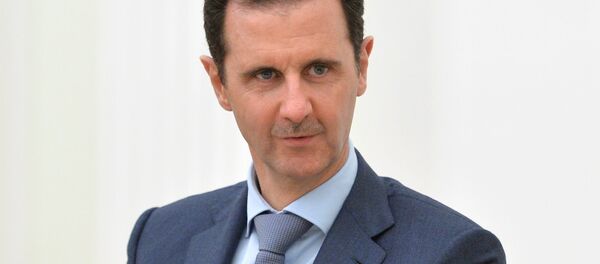He added that the latest round had been overshadowed by a substantial and worrisome deterioration of hostilities. Major differences on fundamental issues remain unsolved, including the political fate of President Assad. During the session, the participants have come up with a handful of alternatives to resolve the deadlock.
The ideas included transferring Assad’s powers to several deputies, forming a new ruling council comprised of both Syrian military officials and moderate rebel leaders or electing a new Syrian leader.
However, none of the propositions gained enough traction, and all are set to face serious obstacles in the forthcoming rounds of talks. Radio Sputnik discussed the issue with Tim Anderson, author of “The Dirty War in Syria,” and senior lecturer of political economy at the University of Sydney.
“There are big differences between the ways that Washington and the way that Moscow is talking about the opposition,” he said.
“The nature of the problem lies with the fact that Washington is saying that these are moderate rebels and political opposition in some sense but essentially these are the master pieces of the armed groups.”
Anderson further spoke about what according to him the United Nations will do about these rebel groups.
“The most effective alternative is for the armed groups to engage in political process but they haven’t shown any sign of doing that. They simply want the Syrian government’s surrender. There are a lot of political opposition groups in Syria and they had their candidates but who will decide who these opposition groups are is the unresolvable question in Geneva, but I don’t think any political solution for Syria will come out of Geneva.”
That was of course reinforced by the presidential elections in 2014, which had a 73% participation right, making that over 2/3 of support for him. But none of that matters to the al-Qaeda groups or to Washington either because they have made it very clear that they want a new government or system that is more appealing to them.”
In conclusion, Anderson said that it is possible that there will be a change of the US opinion after the upcoming US elections as the politicians don’t know how to lose critically, “No upcoming politician wants to associate him or herself with a failed policy, so it could be that whoever it is, Republican or Democrat will look for some new type of approach.”




